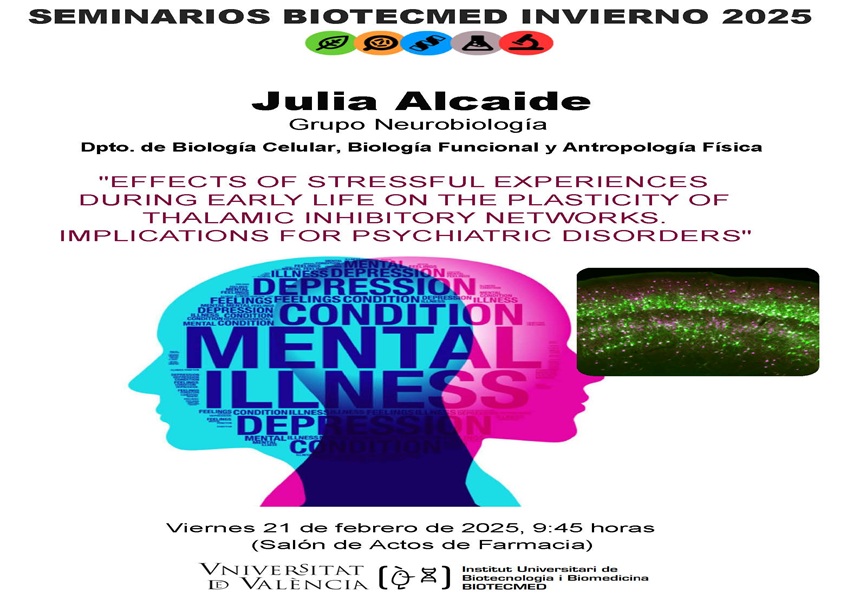
Early life stressful experiences have important and long-lasting effects on the brain and are predisposing factors for developing mental disorders such as major depression. These adverse experiences impact particularly those cerebral regions with protracted development, including the prefrontal cortex (PFC) and the main inhibitory nucleus of the thalamus: the thalamic reticular nucleus (TRN
Early life stressful experiences have important and long-lasting effects on the brain and are predisposing factors for developing mental disorders such as major depression. These adverse experiences impact particularly those cerebral regions with protracted development, including the prefrontal cortex (PFC) and the main inhibitory nucleus of the thalamus: the thalamic reticular nucleus (TRN). The present work, which is part of my doctoral thesis, focuses on parvalbumin-expressing (PV+) neurons and the perineuronal nets (PNNs), matricellular structures surrounding these inhibitory neurons. I also analyzed different glial populations. The study has been developed in a mouse model of peripubertal stress (PPS) and in postmortem samples from patients with different psychiatric disorders: depression, schizophrenia and bipolar disorder, including some that have suffered child abuse. My results demonstrate the susceptibility PV+ neurons of the TRN and their plasticity to stressful experiences in early life, particularly in females. These changes are maintained into the adult stages of life. These effects on the inhibitory neurons are also observed to some extent in human patients. I also have observed an important impact of psychiatric disorders on the PNNs surrounding PV+ cells in the PFC and the TRN.
.png)






